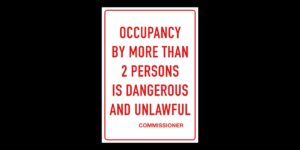Unseen Struggles: Social Anxiety Symptoms That May Fly Under the Radar
Christian Counselor Spokane
Social anxiety, a pervasive mental health condition, often eludes easy recognition due to its intricate and nuanced nature. While some symptoms of Social Anxiety Disorder (SAD) are more overt, others may fly under the radar, making it challenging for individuals and those around them to identify the underlying struggles.
This article aims to shed light on social anxiety symptoms that may go unnoticed, fostering a deeper understanding of this frequently misunderstood condition and encouraging timely intervention for those affected.
 Anxiety symptoms
Anxiety symptoms
Excessive self-consciousness
While a degree of self-awareness in social situations is normal, individuals with social anxiety experience heightened self-consciousness to an extreme. This goes beyond typical self-awareness and can manifest as an acute awareness of one’s every action, movement, or word, leading to a perpetual state of self-scrutiny and concern about how others perceive them.
Perfectionism
Perfectionism, often considered a personality trait, can be an indicator of social anxiety when it becomes an unattainable standard driven by the fear of negative evaluation. Individuals with social anxiety may strive for flawlessness in their appearance, behavior, or performance to avoid potential criticism or rejection from others.
Fear of authority figures
Social anxiety is not limited to interactions with peers; it can extend to relationships with authority figures. Individuals with social anxiety may experience heightened fear or discomfort in the presence of authority figures, such as supervisors, teachers, or managers, fearing judgment or evaluation of their performance.
Difficulty making eye contact
While making eye contact is considered a fundamental aspect of effective communication, individuals with social anxiety may struggle with maintaining eye contact. Aversion to eye contact can be a subtle yet telling sign of social anxiety, as it reflects discomfort with the perceived intensity of interpersonal interactions.
Overthinking social interactions
Socially anxious individuals often engage in extensive rumination about past and future social interactions. Overthinking conversations, anticipating negative outcomes, and replaying social events in their minds are common behaviors. This persistent analysis can contribute to heightened anxiety and a reluctance to engage in social situations.
 Physical symptoms
Physical symptoms
Beyond the psychological realm, social anxiety can manifest in various physical symptoms that may go unnoticed. These can include trembling, sweating, blushing, muscle tension, or even nausea. These physical manifestations are involuntary responses to the heightened stress associated with social interactions.
Avoidance of social situations
Avoidance is a hallmark feature of social anxiety, and it can extend beyond obvious situations like public speaking to more subtle scenarios. Individuals may avoid casual social gatherings, phone calls, or even routine interactions at work due to the fear of scrutiny, judgment, or embarrassment.
Difficulty initiating and sustaining conversations
Socially anxious individuals may struggle with initiating and sustaining conversations. The fear of saying something embarrassing or being judged can hinder their ability to engage in meaningful social interactions, making small talk challenging and leaving them feeling isolated.
Negative self-talk
Internal dialogue plays a significant role in social anxiety. Individuals may engage in constant negative self-talk, berating themselves for perceived social blunders, anticipating rejection, and undermining their self-worth. This negative self-perception contributes to a cycle of anxiety and avoidance.
Performance anxiety beyond public speaking
While public speaking is a well-known trigger for social anxiety, other performance-related activities may also evoke intense anxiety. This can include anything from eating in public and using public restrooms to completing tasks under observation. The fear of being watched or evaluated can extend to various everyday activities.
Recognizing and addressing unseen symptoms
Educating the public
Increasing awareness of the diverse manifestations of social anxiety is crucial in fostering understanding and empathy. Public education campaigns can help recognize the unseen symptoms and reduce the stigma associated with social anxiety.
Encouraging open communication
Creating an environment that encourages open communication about mental health is essential. Individuals experiencing social anxiety may be more likely to seek help if they feel safe discussing their struggles without fear of judgment.
 Training healthcare professionals
Training healthcare professionals
Healthcare professionals play a pivotal role in identifying and addressing social anxiety. Training programs for mental health practitioners, educators, and healthcare providers should include a comprehensive understanding of both overt and subtle symptoms of social anxiety.
Promoting early intervention
Timely intervention is crucial in addressing social anxiety and preventing its potential impact on various aspects of an individual’s life. Early recognition of symptoms, even those that may be less apparent, can facilitate timely and effective intervention.
Building support networks
Establishing support networks that include friends, family, educators, and colleagues is vital. These networks can provide a foundation of understanding and empathy, offering a supportive environment that encourages individuals with social anxiety to seek help.
Normalizing seeking help
Normalizing the act of seeking help for mental health concerns, including social anxiety, is essential. Reducing stigma and fostering an environment where individuals feel comfortable seeking therapy or counseling can contribute to better outcomes.
Conclusion
Social anxiety, with its complex array of symptoms, often conceals itself beneath the surface of daily interactions. By acknowledging the subtle signs, we can work toward a more compassionate and informed approach to supporting individuals experiencing social anxiety. Education, open communication, and early intervention are key elements in breaking down the barriers that prevent those with social anxiety from seeking the help they need.
Understanding that social anxiety extends beyond mere shyness or occasional nervousness allows us to create a society that recognizes and accommodates diverse mental health experiences. As awareness grows, so does the potential for individuals to receive the understanding, support, and interventions that can help them navigate and overcome the challenges associated with social anxiety.
“Stressed”, Courtesy of Daniel Martinez, Unsplash.com, Unsplash+ License; “Anxiety”, Courtesy of Nik, Unsplash.com, CC0 License; “Peeking Through the Foliage”, Courtesy of Drew Dizzy Graham, Unsplash.com, CC0 License





